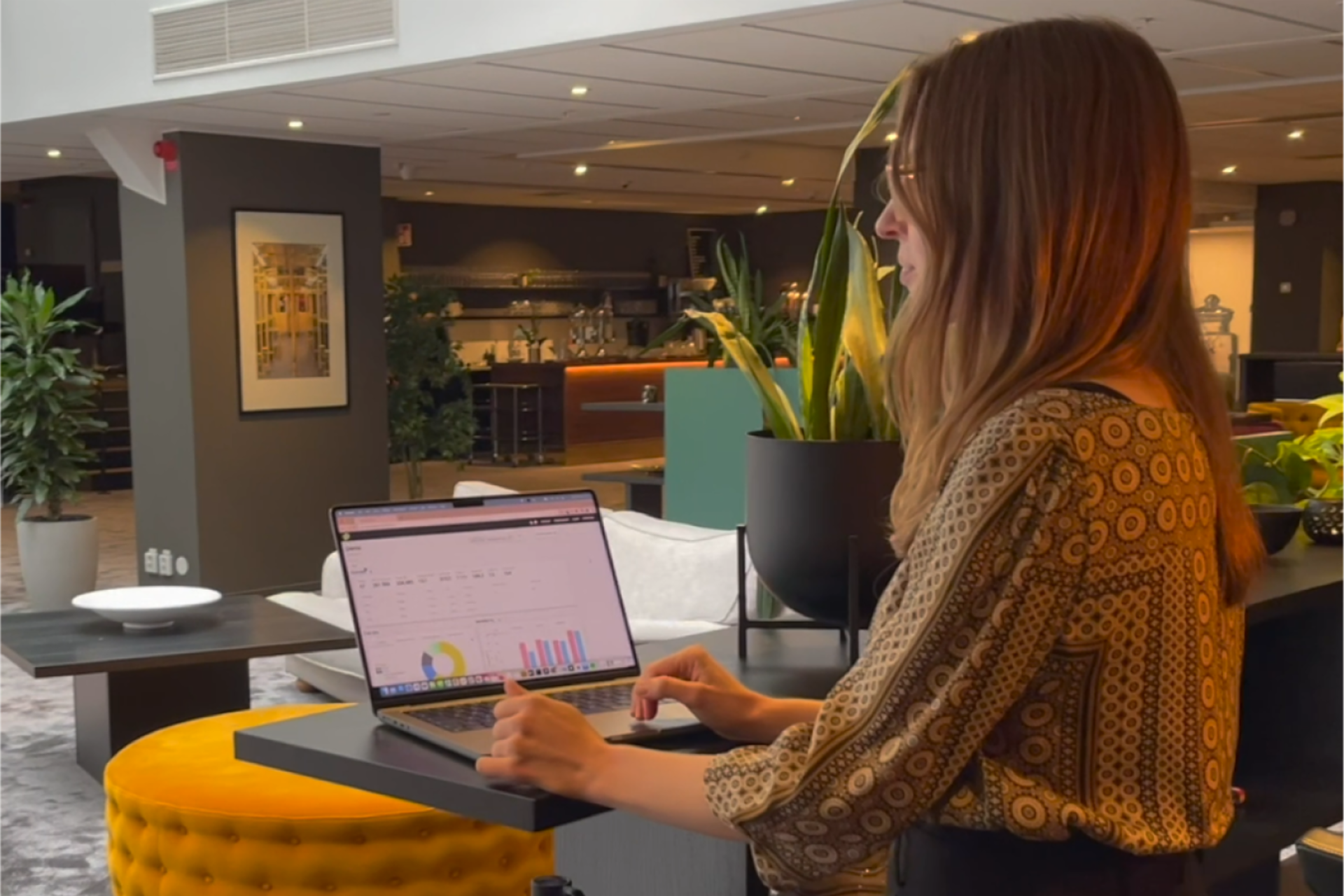Since joining the company as a trainee in 2019, you founded the Scania start-up Elain and played an essential role in driving the business and shaping its sustainability strategy. How have your early experiences as a trainee helped you in your current role?
My time as a trainee was a great learning opportunity and gave me exposure to working with lots of different teams around the company. These experiences helped me to understand how to work towards the same goal from different perspectives.
The Elain story began three years ago as part of Scania Innovation Factory, an intrapreneurship program aimed at developing business ideas and bringing them to market. The first step was to secure funding for a six-month project phase, which ultimately led to the creation of Elain. Here, we help companies to track their emissions from logistics and to adopt a data driven approach to decarbonization. In addition to Scania, Elain's customers include external companies, such as Mars. We are now very diversified.

So, in a way, Elain is your creation. How did you come up with the idea of helping companies decarbonize their logistics activity?
When I worked in Scania's sustainability department, decarbonization was a key priority, with vehicle use-phase emissions a particular topic of interest. My role was to investigate strategies for sourcing green electricity for our electric vehicles.
As we delved deeper into the topic, we realized that this goes much deeper than just tracking green electricity for our battery-electric vehicles. Together with my co-founder and the team, we recognized that customers increasingly expect transport service providers to report on CO2 emissions. However, there was no standardized methodology for doing so. Each customer requires different information, which results in a lot of manual work. Furthermore, users of transport services have difficulty combining and processing the various datasets. At Elain, we are working to address this challenge.
Did you encounter much resistance along the way? Or to put it another way: to what extent did you have to be assertive to turn your vision into reality?
It is definitely a challenge to launch a start-up within a large company like Scania. The way it operates is quite different from a regular start-up, especially when it comes to things like budgets and forecasting. In a start-up, you often have to act very quickly, hire new employees, and adapt the strategy in response to rapidly changing needs and developments. This is not always easy in a larger organization.
The truck industry is still male-dominated in some areas – what advice do you have for women who work there and also aspire to leadership roles?
Women need to recognize the value of their work to the company and then fully exploit that potential. It is important to build self-confidence and actively seek opportunities to bring your own ideas to the table. Furthermore, women should not be afraid to speak up and assert their place within the company. It can also help to build networks, finding mentors, and using these relationships to advance professionally. In my opinion, the focus should always be on supporting the best talent – regardless of gender.
“Women need to recognize the value of their work to the company and then fully exploit that potential. It is important to build self-confidence and actively seek opportunities to bring your own ideas to the table.”
Viktoria Kindesjö Co-founder & Sustainability Lead at Elain
As an energy and environmental engineer, you used to work in R&D – and now, as Sustainability Lead, you focus more on business development and strategy. Do you ever see yourself returning to a role in operations?
My current role encompasses many different functions, and I am particularly interested in the link between strategy and technology. Our product is all about data – specifically, how we can scientifically measure and evaluate decarbonization measures. As an engineer, this analytical approach is very close to my heart. At the same time, I love driving the strategy forward and developing a product that helps the world and the planet.

What values do you consider crucial to meeting the challenges of the future?
I like the concept of the Innovation Factory at Scania, where every employee can apply to contribute with their own ideas. It is important to utilize the knowledge and creative potential of our employees in order to actively shape the future of the transport industry. It is about creating the right environment in which teams can perform at a high level and contribute with their skills. At the same time, we must preserve the values that characterize our company – team spirit and respect for each individual.
What is your personal motivation for starting each new working day?
What really motivates me is the opportunity to work on something that helps both society and the planet. When I see our customers using our data to drive their decarbonization processes, I know we are on the right track. I also have a lot of fun with my colleagues. This is important for team spirit and helps us to work together to overcome challenges along the way.





